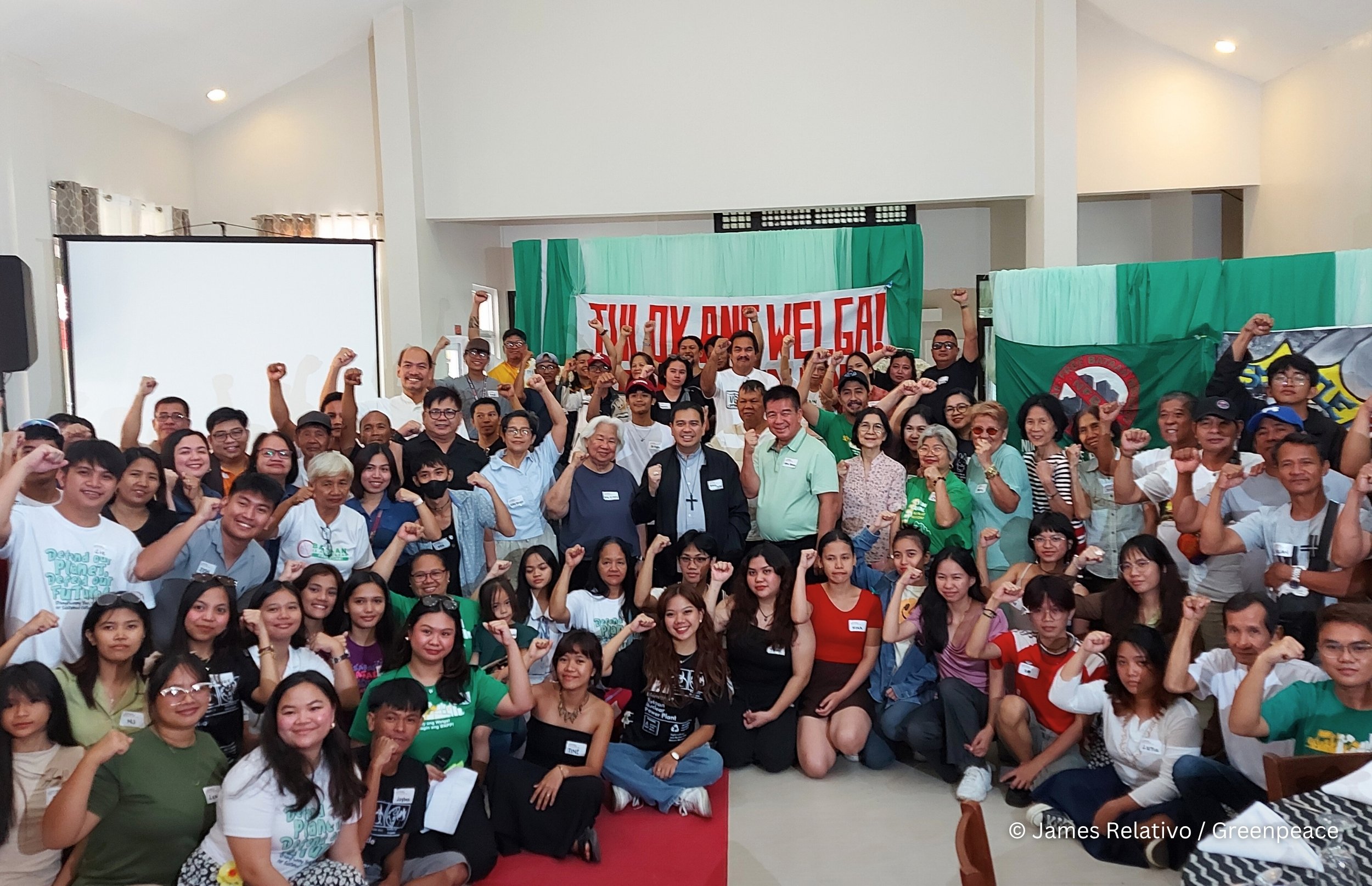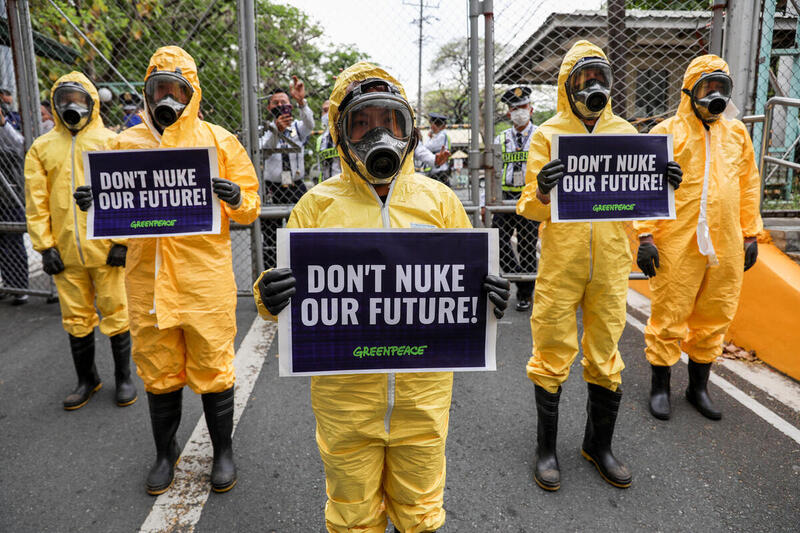Annually, every 16th of October, World Food Day is observed globally. It is a day of action dedicated not only to raise awareness on global hunger, but to get humanity together to eliminate its oldest foe.
In the Philippines, many Filipinos still suffer from lack of food or from very poor diets, despite the rise in food availability. This is because of inadequate access to food due to high poverty and low income, especially among the rural population that is, ironically, generally engaged in agriculture.
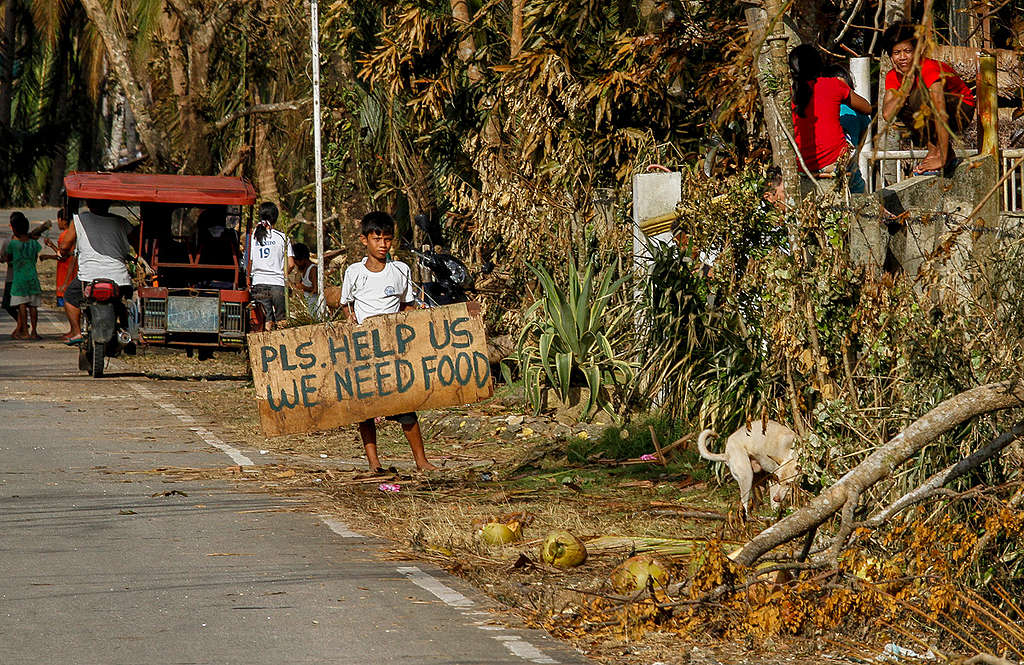
A child holds a sign appealing for aid and reading “Please help us we need food” on the side of a road in Taft, Eastern Samar, Philippines.
According to Philippine Statistics Authority (PSA) figures, the poverty incidence among Filipinos in 2015 was estimated at 21.6 percent. This translates to 21.93 million Filipinos who cannot afford to buy their basic food and non-food needs.
Healthwise, the country is confronted with a double burden case of malnutrition: twenty percent (20%) of children 0-5 years old are underweight while thirty percent (30%) of Filipino adults aged 20 and above are overweight or obese.
But beyond challenges on nutrition and energy needed to perform daily tasks, the issue of food, particularly the way it is produced and distributed, is as well very crucial for our survival as it is also among the largest drivers of climate change and environmental degradation — including biodiversity loss, soil degradation, water pollution, and land-use change.
In recent years there is a high demand for meat and processed meat products in the country. The Food and Nutrition Research Institute (FNRI) has noted a continued decline in the consumption of fruits and vegetables among Filipinos, while the demand for meat has increased.
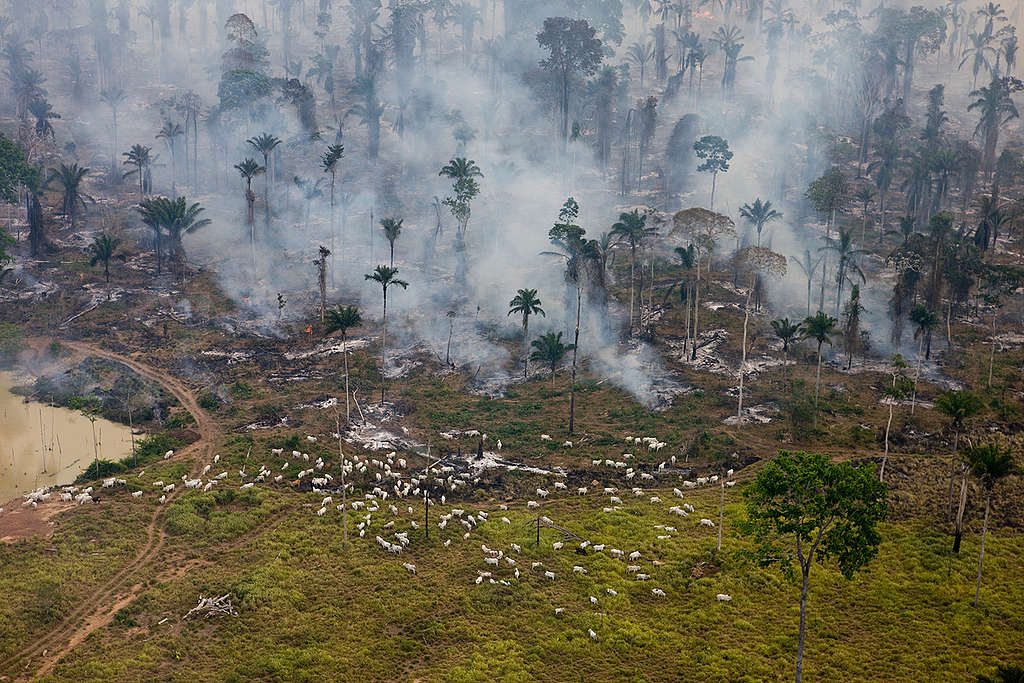
Smoke from man made forest fires to clear land for cattle or crops.
High demand for industrial meat significantly contributes to greenhouse gas emissions and deforestation. Forests or hills cleared after logging operations or mining operations are used for animal grazing and for farming maize for animal feeds. It is now common to see hills and mountains of maize in once-forested areas. Globally, industrial meat production accounts for 14% of greenhouse gas emissions.
Intensive animal production also causes air, water, and soil pollution, such as from chemical fertilizers and pesticides used in feed production; the use and disposal of antibiotics and other anti-microbials for preventive treatments; wastes from slaughterhouses; manure from piggeries and poultry farms; and disposal of affected hogs and chicken infected with African Swine Fever and Avian Flu viruses; among others.
Scientists around the world are now also calling for Mayors to pave the way to tackle the huge impact that industrial meat production and consumption has on our planet.
The good news is, there are already cities, including Quezon City, that have committed to working with their citizens to achieve a Planetary Health Diet for all by 2030. Among the policies that they will introduce are those that make healthy, delicious and low-carbon food affordable and accessible for all.
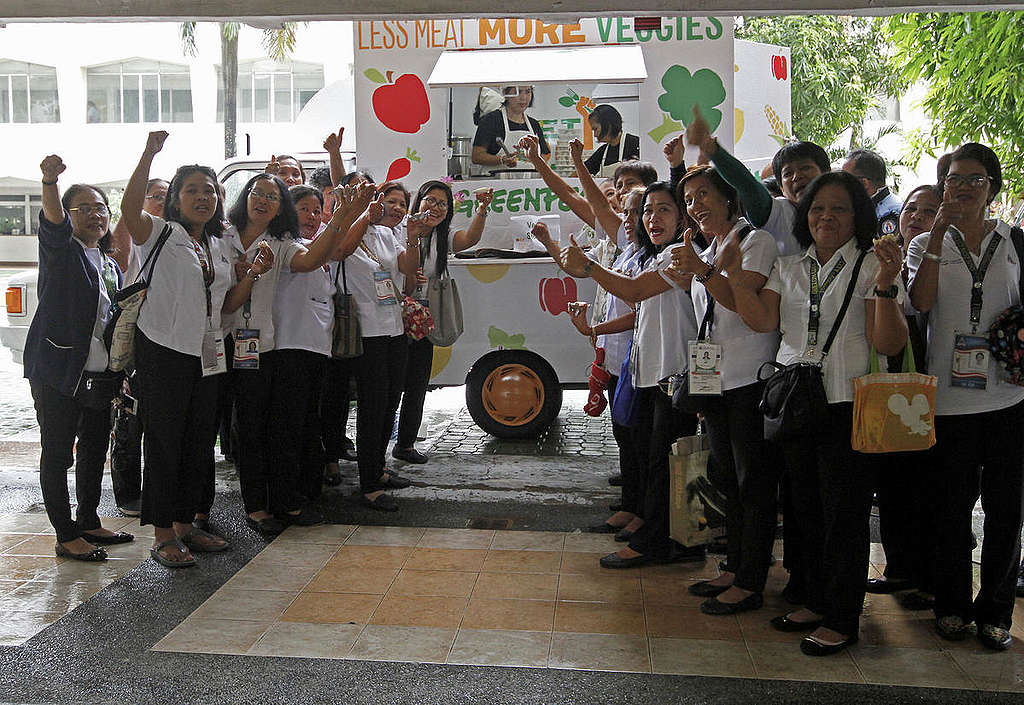
Quezon City government employees join the celebration of the World Meat-Free Week at the Quezon City Hall
The Intergovernmental Panel on Climate Change, in its Special Report on Land, says that balanced diets featuring plant-based foods — such as coarse grains, legumes, fruits and vegetables, and animal-sourced food produced sustainably in low greenhouse gas emission systems — present major opportunities for adaptation to, and limiting, climate change.
If all Filipinos refrain from eating meat for one day per week for one year, this would prevent almost 6.6 million metric tons of CO2 emissions. This is equivalent to taking almost 1.4 million cars off the streets for a year.
We need to re-imagine the way we eat, and consider our health and the environmental footprint of our food. Join the movement!
Virginia Benosa-Llorin is a campaigner at Greenpeace Southeast Asia–Philippines
Cover Image: Bam Lentejas
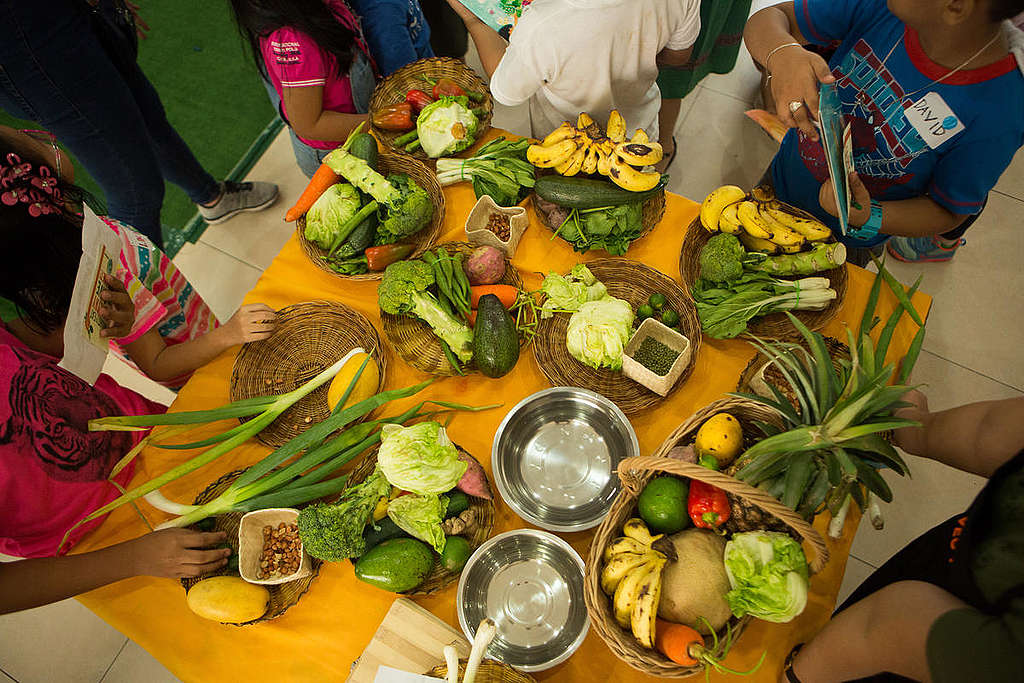

![[Blog] WHEN THE TIDE BECOMES THE TEACHER](https://www.greenpeace.org/static/planet4-philippines-stateless/2025/06/95c8411e-9a04f785-4293-46a6-a6cf-425f0a384682.jpg)
